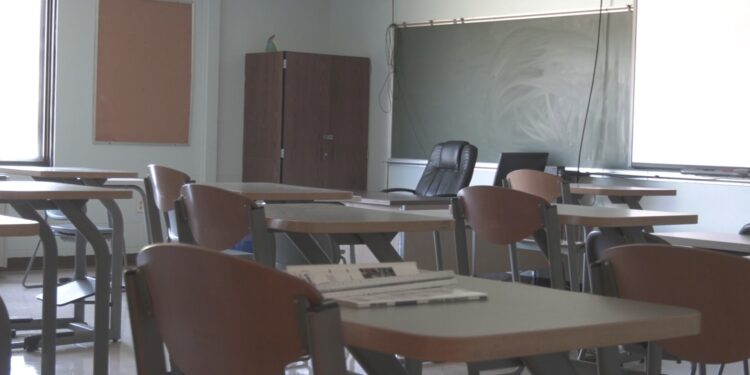LANSING, Mich. (WZMQ) – Michigan Governor Gretchen Whitmer has signed the state’s $24.1 billion fiscal year 2026 education budget, marking her seventh record investment in schools. The bipartisan plan raises per-pupil funding to $10,050, continues free breakfast and lunch in schools, and invests hundreds of millions in early childhood, special education, and teacher recruitment programs.
The budget includes $657 million to expand free pre-K to every 4-year-old, $321 million for school safety and student mental health, and $203 million in educator stipends. It also sets aside $190 million for special education and $122 million for literacy initiatives.
Governor Whitmer called the plan a “historic investment” that ensures “every child in every school has the tools and opportunities they need to succeed.”
But some education advocates say there’s still room for improvement. Kalvin Carter, director of Up North Advocacy, said he was relieved to see free meals and transportation funding preserved but frustrated that the state continues directing money to private schools and disproportionate amounts to cyber schools.
“Private schools, the people who go there should be paying for them. Public school dollars are for public schools, period,” Carter said. “And giving cyber schools the same per-pupil rate as traditional districts doesn’t make any sense.”
He also raised concerns about delays in the budget process, which left districts uncertain as the school year began. “It took three extra months for a budget that isn’t earth-shattering,” Carter added. “Our schools were left hanging.”
The Michigan Education Association’s senior executive director, Erik Edoff, said the final product still represents a step forward for most classrooms.
“The per-pupil funding increased by one of the largest amounts it ever has, and that’s unrestricted revenue for districts to make their best decisions,” Edoff said.
He also praised expanded funding for at-risk students and school safety measures but urged lawmakers to address structural issues with how school aid dollars are used.
“The continuing shift of dollars from the School Aid Fund to pay for higher education and even roads is a problem,” he said. “We need a permanent solution so school funding is protected.”
Edoff said the MEA views the budget as a net positive overall but hopes future legislation will create a more stable funding system that keeps Michigan’s education dollars in the classroom.









